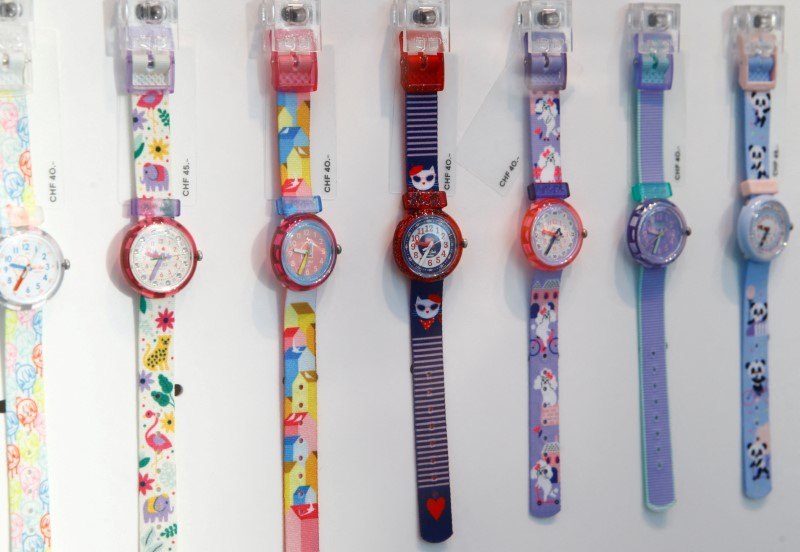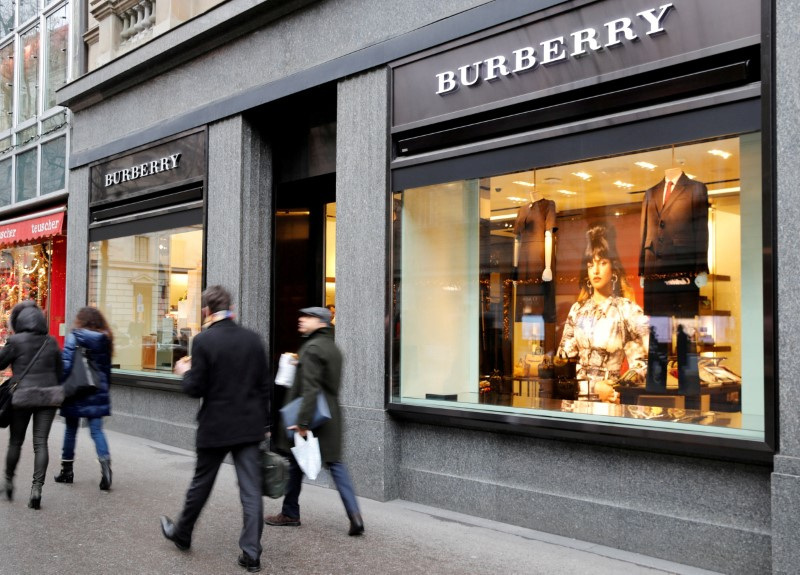By Danilo Masoni
MILAN (Reuters) - Investors in large consumer-goods companies are having to up their stock-picking game, as a post-pandemic spending splurge dries up and increasingly price-sensitive shoppers start to erode corporate pricing power.
Profit warnings in sectors ranging from luxury to food and airlines have fed into worries about a slowdown in the United States and other major economies.
These growth concerns were one of the factors behind a selloff that stripped around $4.8 trillion off global equities in just three days this month.
Stock pickers now need to identify those businesses that won't suffer from a normalisation of spending patterns, let alone from an economic recession.
"Consumers have been able to absorb price increases thanks also to the exceptionally high level of savings accumulated (during the pandemic). It seems that now this is coming to an end," Chiara Robba, head of LDI equity at Generali (BIT:GASI) Asset Management in Paris, said.
"The second-quarter reporting season is showing some signs of consumer slowdown with consequent attempt from companies to reduce prices to boost consumption," she said.
S&P Global's business activity surveys in July suggested firms in the United States and the euro zone weren't able to pass on higher costs quite as easily as before.
There's now a long list of company earnings that point to a softening of pricing power or weakness in consumer spending.
Notable examples include Nestle and Ryanair in Europe and McDonald's (NYSE:MCD) in the U.S., along with payment firms such as Visa (NYSE:V) and Worldline. In many cases, share prices have tumbled.
Forty companies have cut guidance so far this season in Europe, BofA said on Tuesday, the most in over a year, with a majority citing weak demand, including, surprisingly, in the U.S..
"Signs of consumer weakness have caused concern," it said.
SOBERING-UP LUXURY SPENDING
The high-margin luxury industry hasn't escaped and while companies point to the long downturn in China, investors are also paying close attention to spending patterns elsewhere.
Kering (EPA:PRTP)'s Saint Laurent cut prices of its Loulou bag in France, the UK, U.S. and China by 10-15% in May in a "very rare" move for the sector which Barclays said could reflect the brand acknowledging its earlier price hikes had been too aggressive.
Following three years of above-average increases, luxury price inflation is showing signs of returning to its long-term range of 5-7%, or below, said Luca Solca, an analyst at Bernstein in London.
"Weak brands that had been jumping on the bandwagon and increased prices materially are forced now to correct through discounts and promotions," he said. "This is happening because middle-class consumers in the West are sobering up from the post-pandemic euphoria."
Burberry, which sacked its CEO and warned on profit in July, has been cited as one example. Its shares erased almost one fifth of their value on earnings day.
Swatch and Hugo Boss have become the two most shorted stocks on the pan-Europe STOXX 600 index following disappointing numbers, data from Mediobanca (OTC:MDIBY) shows.
Even sector leader LVMH, Europe's second-largest listed company behind Danish drugmaker Novo Nordisk (NYSE:NVO), isn't immune.
"There is certainly a sense of consumer resistance to higher prices, given the ongoing cost of living crisis," Sanjiv Tumkur, head of equities at Rathbones Investment Management, said.
"This appears to be felt across all income segments – for example the luxury goods companies are seeing more challenging and volatile consumer conditions in many geographies, notably China, in all but the top end of the market."
CONSUMER POLARISATION
Gillian Diesen, senior client portfolio manager at Pictet Asset Management, believes the latest earnings releases point more to consumer polarisation than a generalised loss of pricing power.
"At the highest end, most premium brands... are raising pricing again this year, although at more normalised levels," she said, adding that the trend extended beyond the luxury sector.
Carmaker Ferrari (NYSE:RACE) beat expectations thanks to sales of its pricier models, even though consumer demand in the auto sector has been variable.
Differentiation is a big factor too - sectors with low levels of differentiation, such as personal care and food and beverages, could be most at risk, said Generali's Robba.
In sporting goods, Diesen said higher-end innovative brands like On and Deckers' Hoka continue to benefit from pricing and sales growth, in contrast to mainstream names like Nike (NYSE:NKE) and Puma, which cut its profit outlook on Wednesday, sinking its shares to a six-year low.

In airlines, Rathbones' Tumkur cautioned against extrapolating Ryanair's warning to the rest of the industry, citing better demand at rivals Easyjet and Jet2.
"Ryanair is also more of a pure low-cost carrier, whereas its rivals have more exposure to package holidays, which seems to be currently prioritised more highly by customers," he said. "As ever stock selection will be key."
